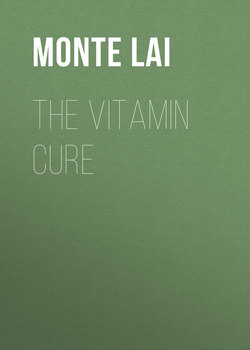Читать книгу The Vitamin Cure - Monte Lai - Страница 16
На сайте Литреса книга снята с продажи.
Оглавление7
VITAMIN B7 (BIOTIN)
Vitamin B7 is biotin. The story of biotin is associated with raw egg whites. In 1927, Margarete Boas fed rats only raw egg whites and found that rats suffered from severe dermatitis, hair loss, and neuromuscular malfunctions. She called the disease “egg-white injury.” In subsequent years, a water-soluble nutrient was isolated from beef liver. Rats fed this water-soluble nutrient recovered from the disease. In 1942, Vincent du Vigneaud confirmed that the chemical structure of the water-soluble nutrient was biotin, called “vitamin B7.” Later, they discovered that raw egg whites contained avidin, a protein that binds tightly to biotin. Almost all biotin in raw egg whites is bound to avidin. Rats cannot absorb biotin that binds to avidin in raw egg whites, so when fed only raw egg whites, they suffered from biotin deficiency. Boiled egg whites would not present such a problem because once boiled, biotin in egg whites is released from avidin.
From an evolutionary point of view, avidin in eggs protects them against bacterial infections. Bacteria need biotin for growth and proliferation. However, biotin bound to avidin makes biotin unavailable to bacteria, guarding eggs against bacterial infections. Avidin in egg whites may allow oviparous animals to survive on Earth.
Vitamin B7 is an essential cofactor for five different carboxylases—enzymes that participate in the fixation of carbon dioxide from the air, activation of histone proteins, and gene expression. Carboxylase enzymes play an important role in transporting glucose into the cell and lowering blood glucose levels to avoid diabetes. Additionally, carboxylase is involved in fat deposition in the dermal layer of the skin, maintaining skin’s moisture, elasticity, and smoothness.
What Are the Symptoms of Vitamin B7 Deficiency?
• Vitamin B7 deficiency can lead to a wide range of physiological abnormalities, including growth retardation, nervous system malfunction, skin disorders, depression, fatigue, delusions, numbness, and/or stabbing pain in the hands and feet. Other symptoms related to vitamin B7 deficiency include hair loss and a scaly rash in the eyes, nose, and mouth.
What Are the Causes of Vitamin B7 Deficiency?
• Various foods are rich in vitamin B7; thus, vitamin B7 deficiency is rare. Bacteria living in the human colon also make vitamin B7. Raw eggs contain avidin, which can hinder the absorption of vitamin B7. People who like to eat raw beaten eggs are at risk of vitamin B7 deficiency. Boiled eggs are safe. Vitamin B7 deficiency is common in patients who require long-term parenteral nutrition or who are on anticonvulsant medications.
Prevention and Treatment of Diseases
• Treatment. Vitamin B7 supplements may mitigate the symptoms of multiple sclerosis (89) and type 2 diabetes (60) and help avoid brittle nails and hair loss.
Which Food Items Are Vitamin B7 Rich?
Many animal- and plant-based foods contain vitamin B7. Animal-based foods rich in vitamin B7 include internal organs, such as liver and kidneys. Egg yolks, oats, bananas, soybeans, nuts, milk, and wheat are excellent sources of vitamin B7.
This list of vitamin B7–rich food items is adapted from information provided by the USDA.
| FOOD | PORTION | VITAMIN B7 CONTENT, MCG | % DAILY REFERENCE VALUE |
|---|---|---|---|
| Beef liver (cooked) | 3 ounces | 31.0 | 10.0 |
| Eggs | 1 | 25.0 | 8.3 |
| Tomato | 1 cup | 7.2 | 2.4 |
| Salmon (cooked) | 3 ounces | 4.5 | 1.5 |
| Avocado | 1 | 4.0 | 1.3 |
| Pork (cooked) | 3 ounces | 3.0 | 1.0 |
| Bread | 1 slice | 3.0 | 1.0 |
| Cabbage | 1 cup | 2.0 | 0.7 |
| Cheese | 1 ounce | 1.2 | 0.4 |
| Raspberry | 1 cup | 1.1 | 0.3 |
Daily reference value of vitamin B7 is 300 mcg according to the 2013 FDA food-labeling guidelines.
What Are the Recommended Dietary Allowances for Vitamin B7?
Although vitamin B7 is considered an essential nutrient, bacteria living in the human colon make vitamin B7, which partially meets the body’s needs.
| 1–3 years | 8 mcg |
| 4–8 years | 12 mcg |
| 9–13 years | 20 mcg |
| 14–18 years | 25 mcg |
| 19 years and older | 30 mcg |
There is currently no upper intake limit for vitamin B7.
Vitamin B7 Supplements
• Dosage. The most common dosages of vitamin B7 supplements are 2,500–5,000 mcg.
• Diabetes. Vitamin B7 can mitigate the symptoms of type 2 diabetes. The suggested daily dose is 7,000–15,000 mcg.
• Nails and hair. Many shampoos and nail polishes contain vitamin B7, claiming that it can repair brittle nails and prevent hair loss. Vitamin B7 is a water-soluble vitamin, which cannot penetrate the skin. Salon products containing vitamin B7 are ineffective in repairing brittle nails or preventing hair loss. However, Vitamin B7 taken orally may treat brittle nails and hair loss. The suggested daily dose is 2,500 mcg for six months.
Safety Issues
• Side effects. So far, there is no known side effect associated with vitamin B7.
• Vitamin B5. High doses of vitamin B5 may interfere with the absorption of vitamin B7 by the intestines.
What Types of Drugs May Interact with Vitamin B7?
• Anticonvulsant drugs. Anticonvulsant drugs can lower the blood level of vitamin B7. Patients who take such drugs should consider supplementation with vitamin B7.
